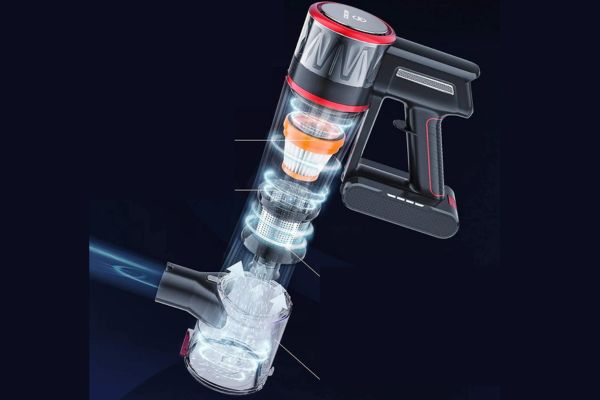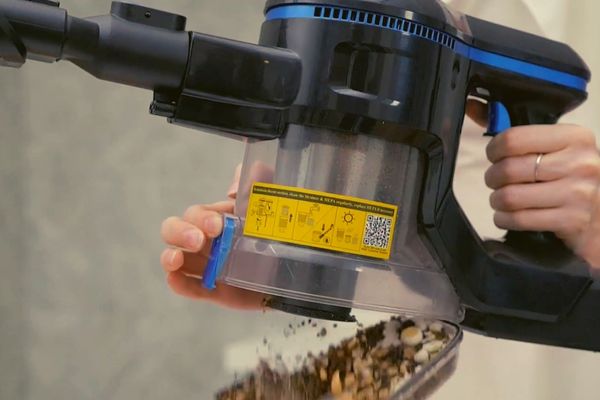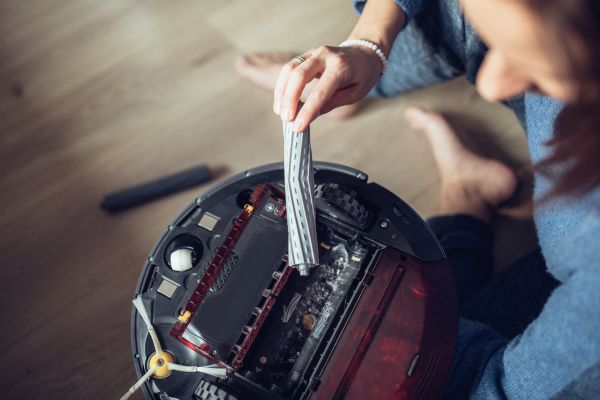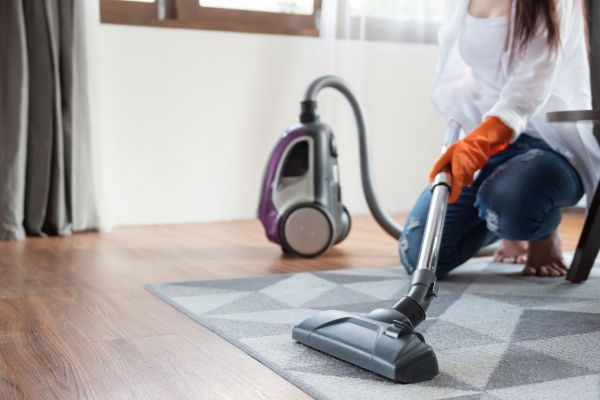Unexpected scorching whiff of your vacuum cleaner- you must be wondering what’s wrong! Ah well, you are in the right place. This article answers all your queries, such as ‘why does my vacuum smell burnt?’ Continue reading to learn the potential reasons for such a smell, how to figure out the source, and what steps you should take. Let’s begin.
Table of Contents
Why Does My Vacuum Smell Burnt?
Straining the vacuum excessively, even when the dust cup is full, can overheat your vacuum. Besides, if parts of your vacuum cleaner get clogged, a damaged power cord can also affect the vacuum when it’s active. In such a situation, if you operate the vacuum, it can smell burnt.
If you operate an overheated or clogged vacuum cleaner for a duration, it’ll emit a burning odor as well as pose a risk of permanent damage to your vacuum cleaner. That is why it’s recommended to inspect the parts of your vacuum cleaner and maintain care instructions regularly to prevent damage and ensure peak performance every time.
If Your Vacuum Smells Burnt, What to Check?
When your vacuum emits a burning smell, you should figure out the issue as early as possible to avoid potential damage. Now, let’s get into the points of what to check if a vacuum smells burnt:
If the Motor Gets Overheated
The motor of your vacuum cleaner can get overheated when it becomes overloaded or undergoes excessive resistance (from a full dustbin or a clogged filter), creating burning smells. When you feel the vacuum heat is increasing, turn it off and unplug the power cord. After that, unclog the hose, filters, or dustbin and wash them (if possible). Then, let the motor cool down before restarting the vacuum for the next cleaning session.

Any Stuck inside the Brush Roll and Belt
Over time vacuuming, the brush roll and the vacuum belt can get tangled with hair, threads, and fibers and can become the habitat of mold and grime, causing friction and a gradual increase of the temperature inside the machine, leading to your vacuum emitting a burnt smell.
See Also: Why Are Vacuum Cleaners So Loud
Inspect the Drive Belt and Bearings
Drive belts of a vacuum cleaner function to help in adjusting the floor heights. Due to inappropriate use or mechanical malfunctions, these belts might be worn out or misaligned, which can also create a burnt smell. Also, check the brush roll bearings and other moving parts of your vacuum cleaner. Due to excessive resistance on the belt and bearings, these parts can also produce burning smells while vacuuming.

Is there any Damage to the Power Cord?
Examine the entire power cord and check if it’s frayed or kinked, especially where it connects to the vacuum and the plug. A damaged power cord can go beyond causing a burnt smell. Such damaged wire can cause potential fire hazards, too!
See Also: How To Get Sock Out Of Vacuum Hose
How to Avoid the Unpleasant Smell of Burnt Vacuum Cleaners?
It’s strongly suggested not to continue operating the vacuum if there is any smell of burnt. Otherwise, the vacuum may encounter potential damage and won’t be able to perform as expected. To prevent the vacuum from emitting an unpleasant smell and maximize its longevity, you can follow the below-mentioned expert tips and tricks:
Regular Maintenance
Regular maintenance of a vacuum cleaner is a must to maintain its optimal performance. After each cleaning, empty and clean the dust bin (wipe or wash), filter, and other removable parts. Wait for a while to dry. Consider replacing the filter, dust cup, and other replaceable parts from time to time when necessary. As part of regular maintenance, ensure your vacuum cleaner does not get clogged and mould and grime can’t get inside the machine.

Don’t Overload Your Vacuum
Vacuums are intended to collect dust and debris, but make sure you don’t overload the machine. People damage their vacuum cleaners while trying to pick up debris higher than the vacuum’s capacity and often stretch the machine even if the dust bin is full. It puts extra pressure on the motor, resulting in malfunction, unusual noise, overheating and causing potential damage.
Inspect for Wear and Tear
Keep checking on different parts of your vacuum cleaner, including the wheels and bearings, replaceable parts like filters, dust cups, etc. Replace those parts periodically to maximize the performance of your vacuum cleaner. Also, lubricate moving parts of the vac by using MOLYKOTE® Specialty Lubricants or similar lubricants on a regular basis, which will minimize friction and lower the risk of overheating.

Operate With the Right Settings
Be cautious about the adjustable settings of your vacuum cleaner. While cleaning delicate surfaces, keep the settings at a lower level. If you operate the on a sensitive area with high-power settings, it can strain the motor and overheat the machine eventually.
Give Adequate Cooling Time
After each extensive vacuuming session, let the vac cool down completely. Otherwise, residual heat can damage internal parts and cause a burning smell when you use it.
Can A Fire Happen In A Vacuum?
Yes, fire can happen in a vacuum if the motor of your vacuum cleaner is extremely heated and burns the vacuum belt. However, fire on a vacuum cleaner doesn’t occur more often if you properly maintain the care instructions, like cleaning vacuum filters, dust bags, and other removable parts. If you can figure out that the vacuum motor gets overheated frequently, then it’s recommended to repair the machine as soon as possible.
What Can Damage A Vacuum?
A vac can easily get damaged if you ignore maintenance. Vacs are potentially prone to damage if the dusty residuals and pesky particles remain inside, develop inside the machine, clogging the filter and causing friction and damage to the internal parts.
Improper use, like using higher suction power on low-pile soft wool carpets, vacuuming wet messes with a non-wet and dry vacuum cleaner, or picking up larger debris or foreign objects that the machine is not intended to clean, can lead to damage to a vacuum.
After each cleaning session, we often just stack the vacuum inside the storage. When we roughly handle a cleaning tool like a vacuum, external and internal components get impacted badly.
Final Words
Vacuum cleaners are essential to upkeep your home with minimal investment of time and effort. If you properly maintain the care instructions and dos and don’ts while vacuuming, even a normal vacuum cleaner with basic cleaning capacities will last for an extended duration. On the other hand, wrongful use and maintenance can damage a high-end machine in the blink of an eye! With precise handling and upkeep, a vacuum cleaner can rejuvenate the gleaming appearance of your living environment for years, saving you a whole lot of bucks!

